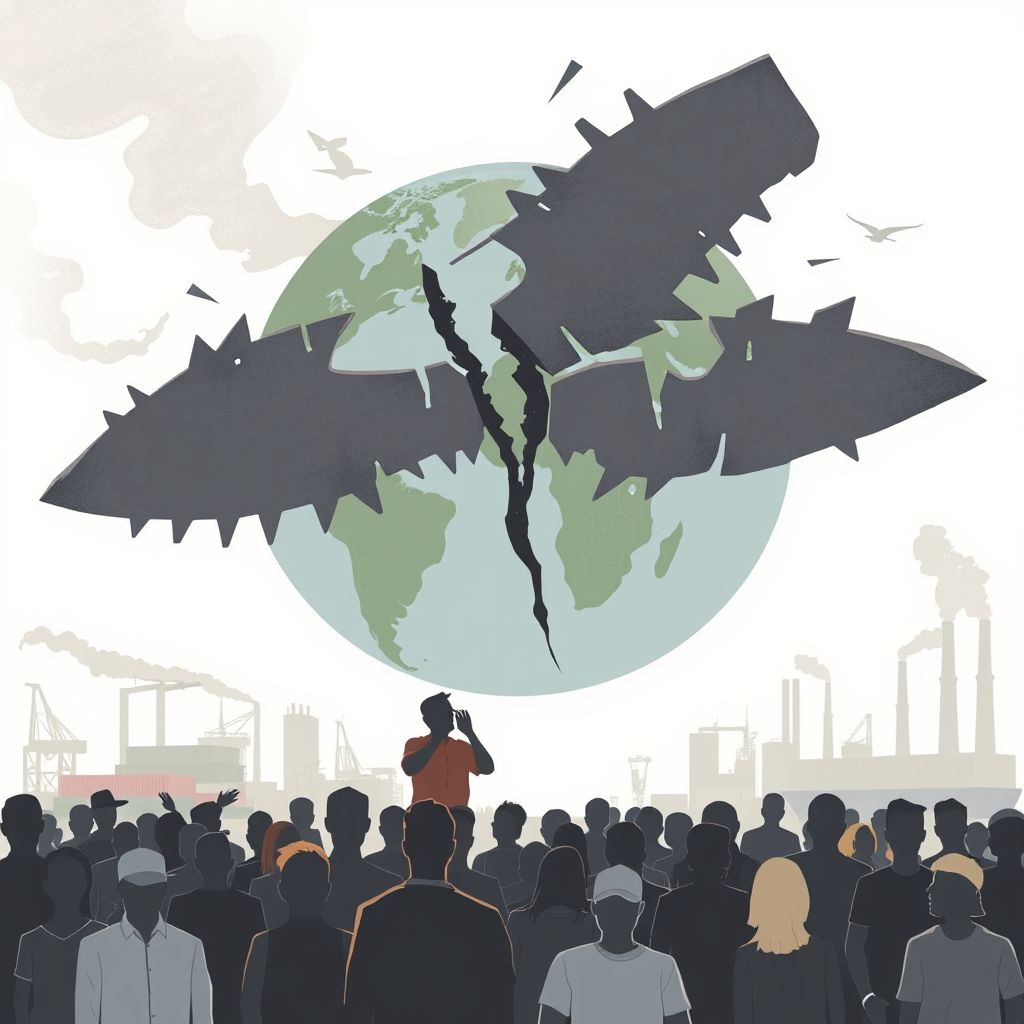Trump's Tariffs Trigger Recession Fears, Economists Blast

A growing chorus of economists are voicing serious concerns that President Donald Trump’s escalating tariffs are jeopardizing global economic stability and potentially triggering a recession. The imposition of steep tariffs on imports into the United States has ignited a trade war, prompting fears of widespread economic downturns across numerous countries.
Economists are framing the tariffs not simply as economic policy, but as a reaction to, and a rejection of, decades of established economic principles. Thomas Piketty, author of “Capital in the Twenty-First Century,” argues that “Trumpism” represents a backlash against the perceived failures of “Reaganism” and the promises of economic liberalization and globalization. He suggests the current administration is scapegoating the rest of the world to deflect from domestic economic inequalities, a strategy he believes will ultimately exacerbate inflation and widen the gap between rich and poor. Piketty advocates for a substantial European investment plan focused on infrastructure, education, research, and healthcare to prepare for a looming global recession.
Nobel laureate Paul Krugman is far more blunt, characterizing Trump’s actions as a deliberate dismantling of the modern trade system the United States itself championed for decades. He views the tariffs not as a pursuit of legitimate economic goals, but as a “dominance display” intended to intimidate and coerce. Krugman accuses the administration of “malignant stupidity” at a critical juncture for the global economy, questioning how any international actor can trust the United States given this erratic behavior.
The impact is expected to be particularly severe for developing nations. Nasser Saidi, a former Lebanese economy minister, warns of significant disruptions to trade relations and foreign investment in countries like Egypt, Lebanon, and Jordan. He believes the tariffs, lacking any sound economic justification, will severely disrupt global supply chains and signal the end of an era of globalization and liberalization, potentially driving Middle Eastern nations toward stronger ties with Asian partners.
Kako Nubukpo, an economist and former Togolese government minister, highlights the vulnerability of African nations already grappling with political instability. He connects the rise of protectionism to a broader trend of increasing illiberalism globally, suggesting that those left behind by globalization are fueling the demand for such policies. Nubukpo frames Trump’s actions as a recognition of perceived weakness in the competition with China, characterizing protectionism as a “weapon of the weak.” He urges African nations to prioritize the development of regional and national value chains to mitigate the impact of the tariffs.
The consensus among these economists is stark: Trump’s tariffs are not a viable solution to complex economic challenges. They represent a dangerous departure from established principles, threaten global economic stability, and disproportionately harm the world’s most vulnerable nations. While the motivations behind the tariffs are debated, the potential consequences – a global recession and a further erosion of trust in international cooperation – are deeply concerning. The situation demands a reassessment of trade policies and a renewed commitment to collaborative economic solutions.